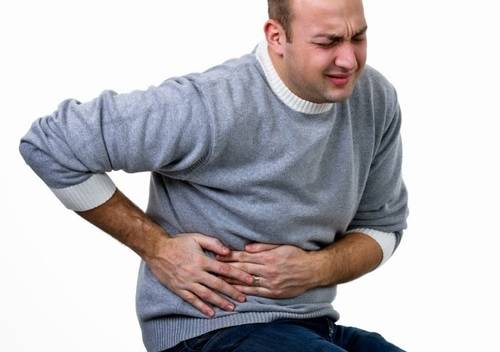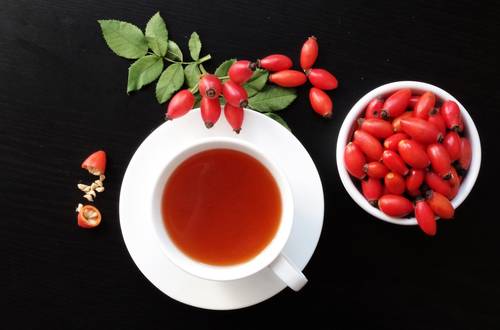Many people are not particularly good with antibiotics, so they have a question: is it possible to get rid of a Helicobacter pylori infection without resorting to such aggressive drug therapy. You will learn how to treat it with natural and homeopathic remedies, what methods are practiced abroad, is it possible to effectively treat Helicobacter pylori without the use of antibiotics?
It is no secret that a dangerous bacterium can negatively affect the functioning of the gastrointestinal tract and other internal organs. Helicobacter pylori infection causes gastritis, ulcers and a number of other diseases, and in a neglected state it can provoke cancer of the stomach or duodenum. Therefore, aggressive bacteria must be fought mercilessly. How to get rid of it, you will learn from the material. Comprehensive treatment includes not only taking modern antibiotics, but also dieting, taking prebiotics, a special diet, and using traditional medicine recipes.
Is it possible to treat Helicobacteriosis without drugs?
Helicobacter pylori is most often detected in the diagnosis of gastritis and ulcers, so the eradication of this bacterium always occurs simultaneously with the treatment of gastrointestinal disease. Usually the doctor selects a complex of antibiotics, a proton pump inhibitor, enzyme preparations. Doctors also recommend taking prebiotics. After all, drugs that have an antibacterial effect kill not only harmful microorganisms, but also useful ones. The duration of the course of treatment is, on average, 2-4 weeks.
Is it possible to cure Helicobacter pylori on its own, without the use of antibiotics? This question interests many people who are prevented from living normally by bacterial gastritis or an ulcer. Alas, the treatment necessarily includes taking antibacterial drugs. After all, it is possible to “defeat” the ulcer and gastritis caused by Helicobacter only after the complete extermination of this bacterium. However, you should not be afraid of antibiotics. Doctors prescribe them only after a full diagnosis of the patient.
You can do without antibacterial drugs only if the seeding of Helicobacter pylori is very insignificant and it does not provoke the development of gastrointestinal diseases. In this case (only with the consent of the attending physician), you can try to reduce the number of bacteria in other ways. At the same time, it is imperative to regularly monitor whether there is an increase in the number of Helicobacter, and carefully monitor the condition of the stomach and intestines so as not to miss possible negative consequences and proceed to drug treatment in time.
Although in some patients the settlement of Helicobacter was detected by chance and did not provoke gastrointestinal diseases, many doctors are convinced that antibiotic treatment must necessarily take place in any case. After all, with a weakened immune system, a rapid multiplication of bacteria is possible, which will cause big problems with the digestive organs. Some doctors are of the opinion that treatment is necessary only in the presence of concomitant diseases, because Helicobacter can live in the human body for years without causing any side effects.
After complex treatment (including antibiotics), it is necessary to do a breath test, which is recommended as a follow-up examination. If the selected drugs did not give the desired result, it is recommended, as prescribed by the doctor, to repeat the treatment regimen using other medicines.
According to the latest data, the complete destruction of bacteria is possible in 60-90% of cases. How to cure Helicobacter pylori in more difficult situations? American scientists conducted a small experiment on 18 patients suffering from helicobacteriosis, and found that the culprit of gastritis and ulcers is vulnerable to light. In the case of patients, phototherapy proved to be safer and more effective (compared to the traditional treatment regimen). However, more research is needed to see if antibiotics can be replaced with laser treatment.
Homeopathy for the treatment of bacteria
The treatment regimen for gastritis with Helicobacter without the use of antibacterial drugs or in addition to them sometimes involves homeopathic medicines.
Unlike traditional medicine, homeopathy considers Helicobacteriosis as a disease of the whole organism as a whole, and not just an infectious process. According to supporters of homeopathic treatment, in order to successfully destroy the bacteria, it is necessary to restore the microflora of the gastrointestinal tract and raise the body's immunity.
Mainstream medicine is often skeptical about homeopathic medicines, but usually does not prohibit their use as adjunctive therapy. In addition, their use is possible if a doctor you trust does not consider the use of antibiotics at the moment necessary.
What foods should be avoided
Many people know that when bacteria are found in the body and gastritis, ulcers are diagnosed, it is necessary to eat right. But in addition to fried and spicy foods, there are a number of foods that can aggravate the symptoms of the disease and provoke the reproduction of Helicobacter pylori.
- These include products containing gluten: rye, wheat, semolina. Gluten is also found in beer. Therefore, if you want to drink some alcohol on a holiday, it is better to limit yourself to a glass of wine. The fact is that gluten molecules negatively affect the functioning of the immune system, preventing the full absorption of useful substances and nutrients. In addition, scientists have found that many people with Helicobacter pylori infection suffer from gluten intolerance.
- Experts came to the conclusion that people with Helicobacter should limit their use dairy products(due to the high likelihood of lactose intolerance). It is also known that cow's milk is undesirable to drink with increased acidity of the stomach.
- Foreign doctors believe that with helicobacteriosis it is necessary to abandon soy products nutrition. These include tofu, soy milk, and sports drinks. Soy adversely affects the functioning of the organs of the gastrointestinal tract and suppresses the immune-protective functions of the body.
Effective treatment of Helicobacter pylori is possible only with the use of antibiotics. However, some people after a course of therapy notice that they feel worse. Therefore, while taking the drugs, it is recommended to avoid eating foods high in sugar. Unfortunately, under the influence of some antibiotics, an increased growth of Candida fungi begins. To prevent this from happening, the use of prebiotics and antifungal agents is mandatory. Some experts believe that it is necessary to reduce the consumption of not only favorite cakes and carbonated drinks, but also bread and pasta.

Natural Treatments
As an adjunct to antibiotic treatment, as well as to prevent the reproduction of Helicobacter pylori or re-infection with it (especially in the case of weak gastrointestinal immunity), it is recommended to consume certain certain foods and herbal remedies.
- Modern research has proven that food intake some types of products can reduce the number of bacteria in the body. These include broccoli sprouts, Japanese plum, coffee (use with caution in diseases of the gastrointestinal tract), cocoa, yogurt.
- Daily use cranberry juice able to keep the growth of Helicobacter pylori. The conclusion is based on a study by foreign scientists, which was conducted at the Oncology Department of Peking University. Participants in the experiment consumed 250 ml daily. cranberry juice. The course of treatment was 90 days, after which most people feel better. Studies were also conducted by Israeli scientists who concluded that cranberry juice is effective in the fight against Helicobacter pylori. However, remember that this method can only be used in the absence of any diseases of the stomach, otherwise you will provoke a serious exacerbation of gastritis or ulcers, since cranberry juice is contraindicated in these diseases.
- Spanish scientists believe that olive oil is an excellent prevention and treatment of helicobacteriosis. Experts have found antioxidant compounds in the product that are effective in combating certain strains of bacteria.
- Licorice root, although it does not contribute to the destruction of Helicobacter pylori, however, prevents it from sticking to the walls of the stomach. You can prepare healing infusions on its basis, or you can use it in the form of chewable tablets.
- Fenugreek and its properties have long been legendary. Indeed, an oriental spice called fenugreek helps to overcome Helicobacter. The seeds also prevent flatulence and inflammation in the organs of the gastrointestinal tract.
- Laboratory studies on rodents have shown that Korean red ginseng has antihelicobacter effect. However, this remedy, familiar from the time of ancient civilizations, has contraindications. Therefore, first consult with a specialist.
- Baikal skullcap- Scutellaria baicalensis - is considered a natural antibiotic for the eradication of bacteria. However, those people who suffer from diabetes and low blood pressure should be careful with its use. Caution should be used in case of poor blood clotting.
First of all, the presence of Helicobacter pylori infection in the body indicates poor immunity. Therefore, the patient's diet should include foods rich in vitamins A and C. One of the most effective ways to treat Helicobacter at home without the use of antibiotics is taking rosehip infusion. Few people know that its fruits contain 50 times more vitamin C than lemons and other citrus fruits.

Until now, the source of infection with a dangerous bacterium is unclear. However, experts recommend strictly adhering to the rules of personal hygiene, properly handling food consumed.
Although the Helicobacter pylori bacterium cannot be treated without antibiotics, there are a number of methods that, in combination with traditional drug therapy, will help get rid of it. The main thing is to timely identify the "culprit" of your poor health and start treatment.
Classmates
